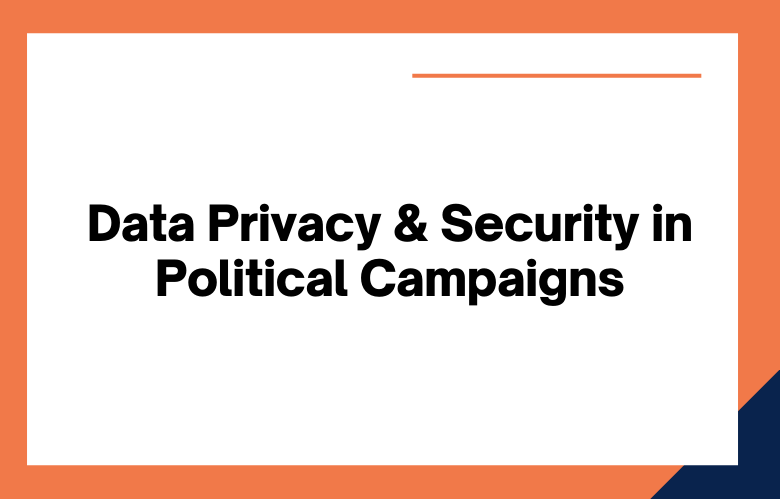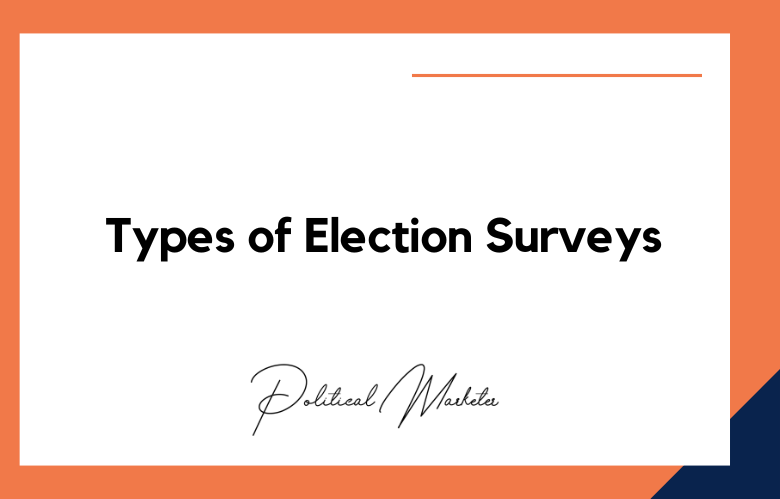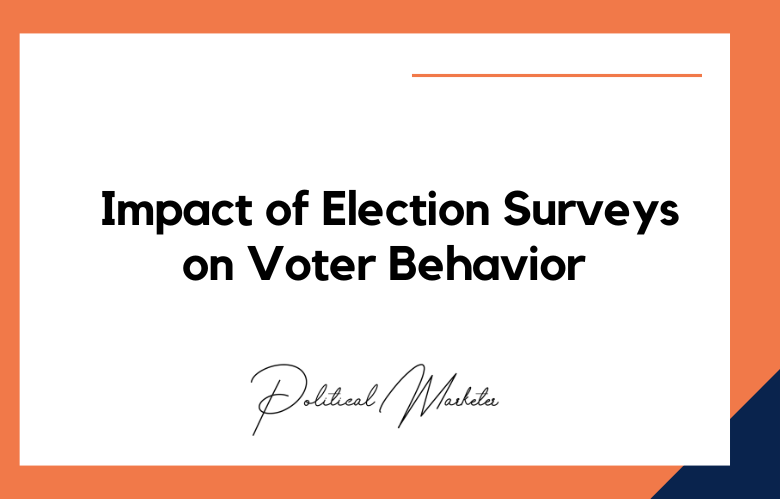The use of data analytics in politics is a relatively new phenomenon, but it is growing in popularity. With data analytics, campaigns can target voters more effectively and ensure their message reaches the right people.
We will discuss the data analytics used in political marketing campaigns and provide some tips.
Modern-day campaigning is all about data. Political campaigns use data to determine their target audience, what messages appeal to them, and where to allocate resources to reach them effectively.
Data analytics can help campaigns fine-tune all aspects of their marketing strategy, resulting in a more effective campaign overall.
We’ll discuss how political campaigns can use data analytics to improve performance. We will also provide tips on data analytics if you’re unfamiliar with it. So read on for insights into how data can help your political campaign succeed!
What is data analytics, and why should you use it for your political marketing strategy?
Data analytics means analyzing data to extract valuable insights that can help inform decision-making.
Why should you use data analytics for your political marketing?
Data analytics can help you identify trends and understand voting patterns, helping you to target your marketing more effectively and make more informed decisions about your campaign strategy.
- Data analytics collects, cleans, and analyzes data to generate actionable insights.
- It tracks voter behavior, understands campaign effectiveness, and predicts election outcomes.
- Political marketing teams can use data analytics to target swing voters, maximize volunteer efforts, and get out the vote on election day.
Data analytics can seem daunting, but it is essential for any political campaign. You can significantly boost your campaign by understanding data analytics and how to use it.
Data analytics collects and analyzes data to gain insights. This information can track changes and trends, identify opportunities and challenges, and make better decisions.
Data analytics can track voter behavior, fundraising efforts, and media coverage for political campaigns. By understanding what voters are interested in and what issues they are concerned about, campaigns can tailor their messaging and strategies. Additionally, data analytics can help campaigns assess their progress and make necessary adjustments.
- Data analytics collects, reviews, and analyzes data to make informed decisions.
- Some reasons you might use data analytics for political marketing include understanding your voters, targeting specific demographics, and measuring the effectiveness of your campaigns.
Using data analytics, you can gain valuable insights that can help you win elections and better serve your constituents.
The benefits of using data analytics for your political marketing campaign
- Understand your audience
- Create targeted content
- Measure the impact of your marketing campaigns
- Optimize your campaigns as needed
- Analyze the results of your campaigns
- Identify key demographics
- Analyze voting trends
- Track popular issues and policies
- Gather feedback from constituents
- Track voter engagement and sentiment
- Analyze media coverage of your campaign
- Monitor social media conversations around your campaign
- Gauge the effectiveness of your marketing efforts
- Optimize your campaigns as needed
- Gauge public opinion on specific issues
- Analyze how well your campaign messaging is resonating with voters
- Track voting trends and identify potential swing districts
- Spot early warning signs of a losing campaign
- Evaluate the performance of your team on the ground
- Optimize your strategy as the race progresses
- Data analytics can help you understand your target audience
- It can help you identify which platforms to use for your marketing campaign
- You can use data analytics to measure the success of your marketing campaign
- It can help you understand how people are reacting to your marketing messages
- You can use data analytics to find new and innovative ways to reach out to potential voters
- It can help you optimize your website and social media content
- You can use data analytics to track spending and budget more effectively
How to collect and analyze voter data
To collect voter data, you will need to follow these steps:
First, you must create a list of people to collect data. It is done by reviewing public records or asking people if they are registered to vote.
Next, you must create a survey asking questions about voting habits and opinions on various political issues. Ensuring that the questions are unbiased and easy to answer is essential.
After you have collected the data, you will need to analyze it to see what trends emerge. It looks at the survey’s overall results or breaks them down into groups based on factors such as age.
To collect and analyze voter data, you will need to follow these steps:
- Collect data from many sources, such as polling places, voter registration records, and surveys.
- Analyze the data to identify trends and patterns.
- Report your findings clearly and concisely.
Keep in mind a few things when collecting voter data. First, make sure you have a solid plan for how you’re going to collect the data. It could include the use of specific software or hiring experienced professionals.
Another essential aspect to consider is how you will analyze the data once it is collected. This part of the process can be critical in gaining valuable insights into voter behavior.
You’ll need to set up a voting booth to collect voter data. Then, you’ll need to analyze the data you’ve collected. To do this, you’ll need to use a computer program.
Using data analytics to target specific voters
Data analytics can be used to target specific voters. It can help campaigns focus their efforts on the voters most likely to support them. By targeting these voters, campaigns can improve their chances of winning elections.
Strategies for using data analytics to target specific voters can be surprisingly simple.
For example, one approach is to target based on location.
In particular, you can target people who live in swing states or critical congressional districts.
These are the voters who are most likely to vote for your candidate.
Another helpful tool is to analyze voting patterns.
It will identify which voters are more likely to vote for your candidate.
You can then target these voters with specific messages to persuade them to vote for your candidate.
Data analytics is pivotal in targeting specific voters in today’s political landscape. By understanding certain areas’ voting patterns and demographics, candidates can create targeted marketing campaigns that are more likely to resonate.
Election season is upon us, and data analytics is increasingly vital in targeting specific voters. By understanding the preferences and concerns of different voter groups, campaigns can more effectively target their messaging and outreach.
Data analytics can help identify which voters are most likely to be swayed by a particular message. This information can create targeted campaign ads and messages more likely to resonate with these voters. In turn, this can help to build support for a candidate and increase voter turnout.
We can better understand the electorate and what motivates them with data analytics. This information improves our democracy and ensures that everyone’s voice is heard.
Strategies for using data analytics in your political marketing campaign
The use of data analytics in political marketing campaigns is becoming increasingly popular. Here are some policies to make the most of this powerful tool:
- Identify your key demographics and what issues matter to them.
- Use data to target your messaging and advertising specifically to these groups.
- Monitor social media and other online activities to see what content and messages resonate with voters.
- Use polling and other data-driven methods to track the effectiveness of your campaign
- use data to segment your audience and tailor your messages accordingly;
- Use data to identify what’s working and what’s not, and adapt your strategy accordingly;
- Use data to track changes in public opinion and adjust your messages accordingly; and
- Use data to get feedback from voters and refine your methods.
- Develop targeted messages and communication strategies that resonate with your audience and get them to take action.
- Continuously measure and track the effectiveness of your campaign using data analytics. Course correct where necessary to ensure maximum impact.
- Data analytics can help you develop targeted messaging for your political marketing campaign.
- By understanding your target voter, you can use data analytics to craft a message that will resonate with them.
- Data analytics can also help you determine where to allocate your marketing resources for maximum impact.
Data analytics in your political marketing campaign can better target your message and maximize your resources.
Data analytics understand better your target audience, pinpoint critical issues, and develop targeted messaging for your political marketing campaign. You can tailor your campaign to address your constituents’ needs and interests by leveraging data analytics.
- Use data analytics to understand your target audience.
- Develop targeted marketing messages based on your understanding of the data.
- Test and measure the values of your data-driven marketing campaigns.
- Use data to segment your audience.
- Use data to personalize your messaging.
- Use data to target your advertising.
- Use data to monitor and adjust your campaign in real time.
- Use data to post-evaluate your campaign’s effectiveness.
Conclusion:
The post provides some ideas on how data analytics can help improve your political marketing strategy.
Data analytics is a powerful tool used for multiple purposes.
It considers all of the options for using data analytics and then decides what will work best for your campaign.
Contact us today if you want more information on how we can help you use data analytics to win your next election!
One way to get in touch is by filling out our online form on this site or give us a call at
+91 9848321284. Let’s work together today!










